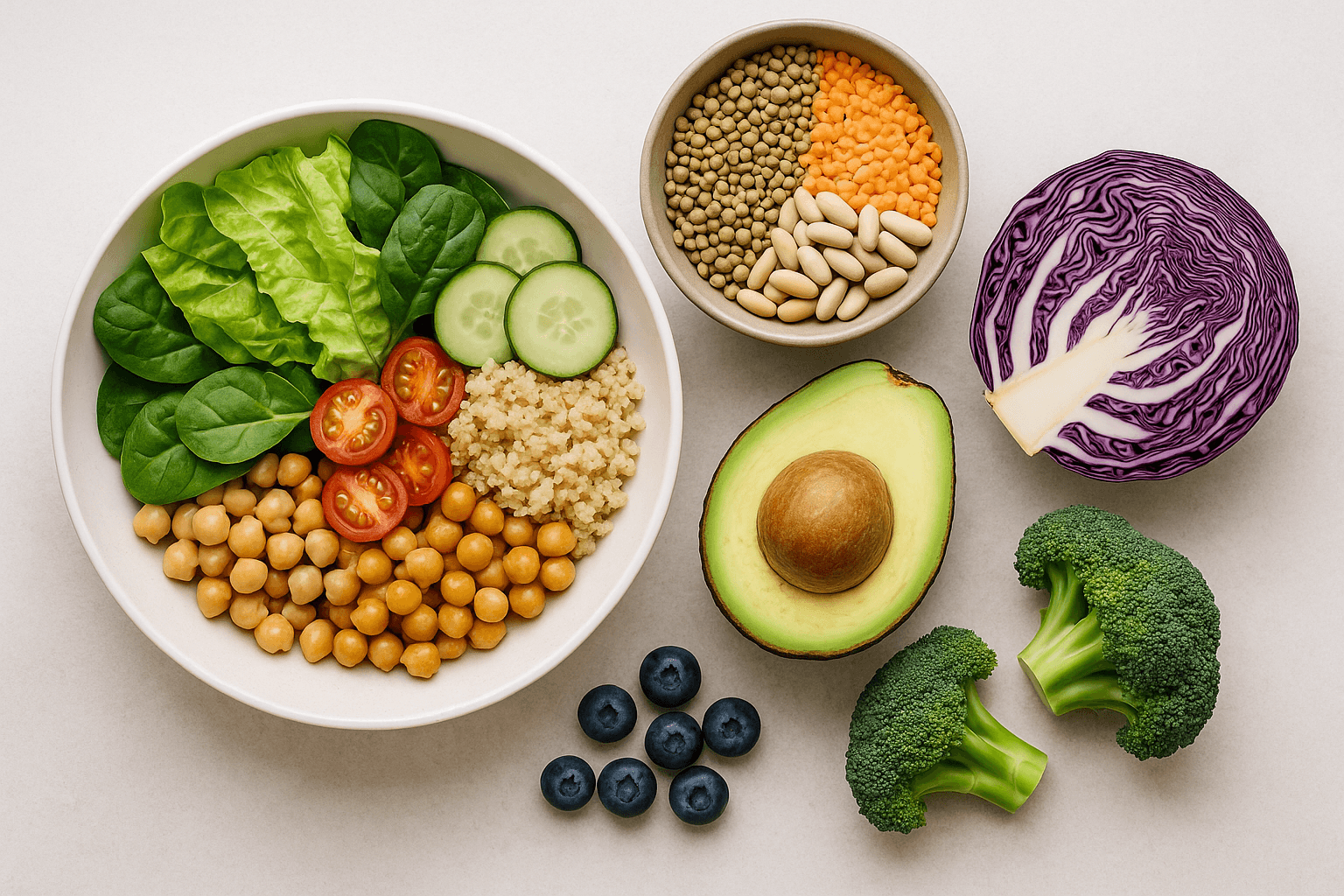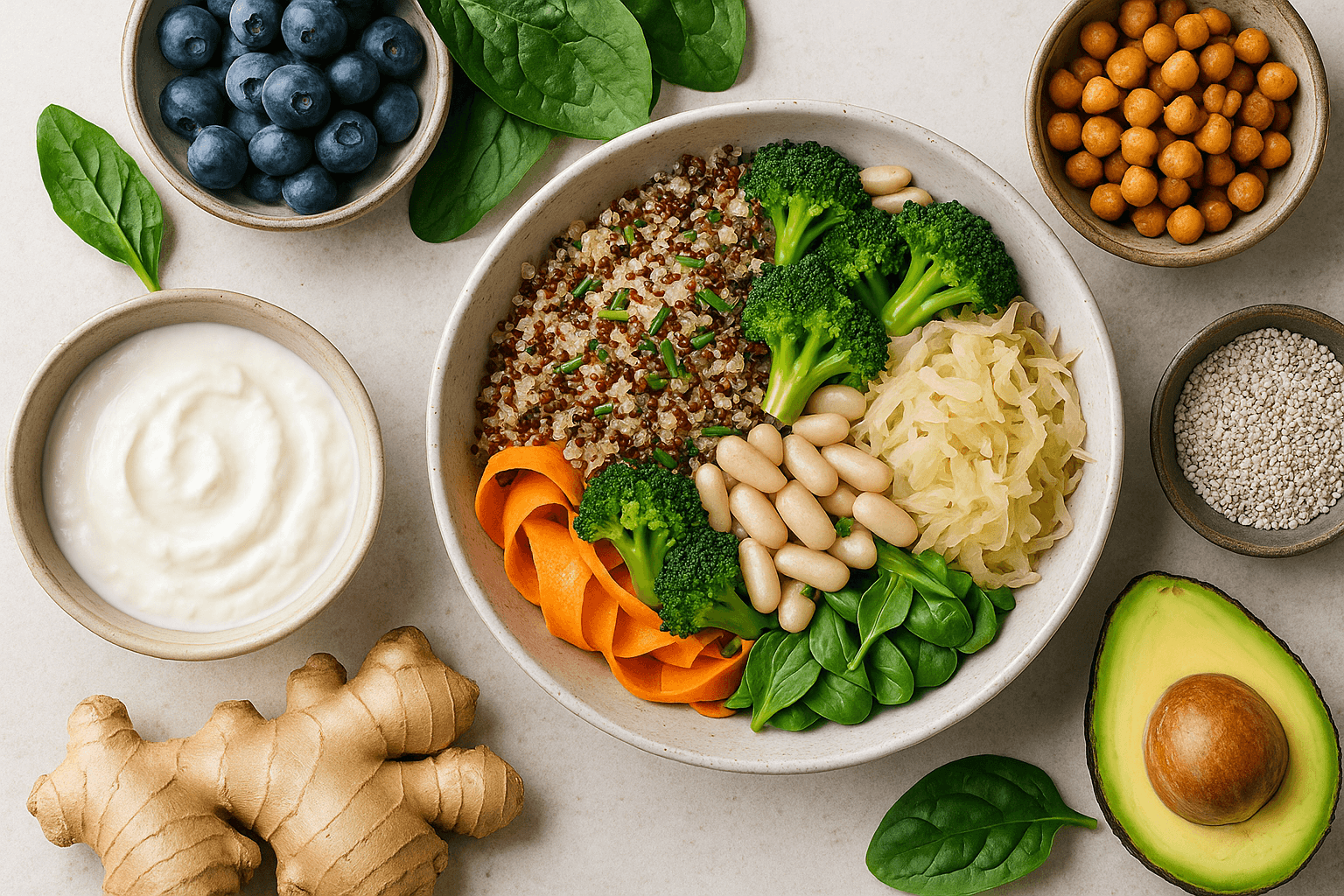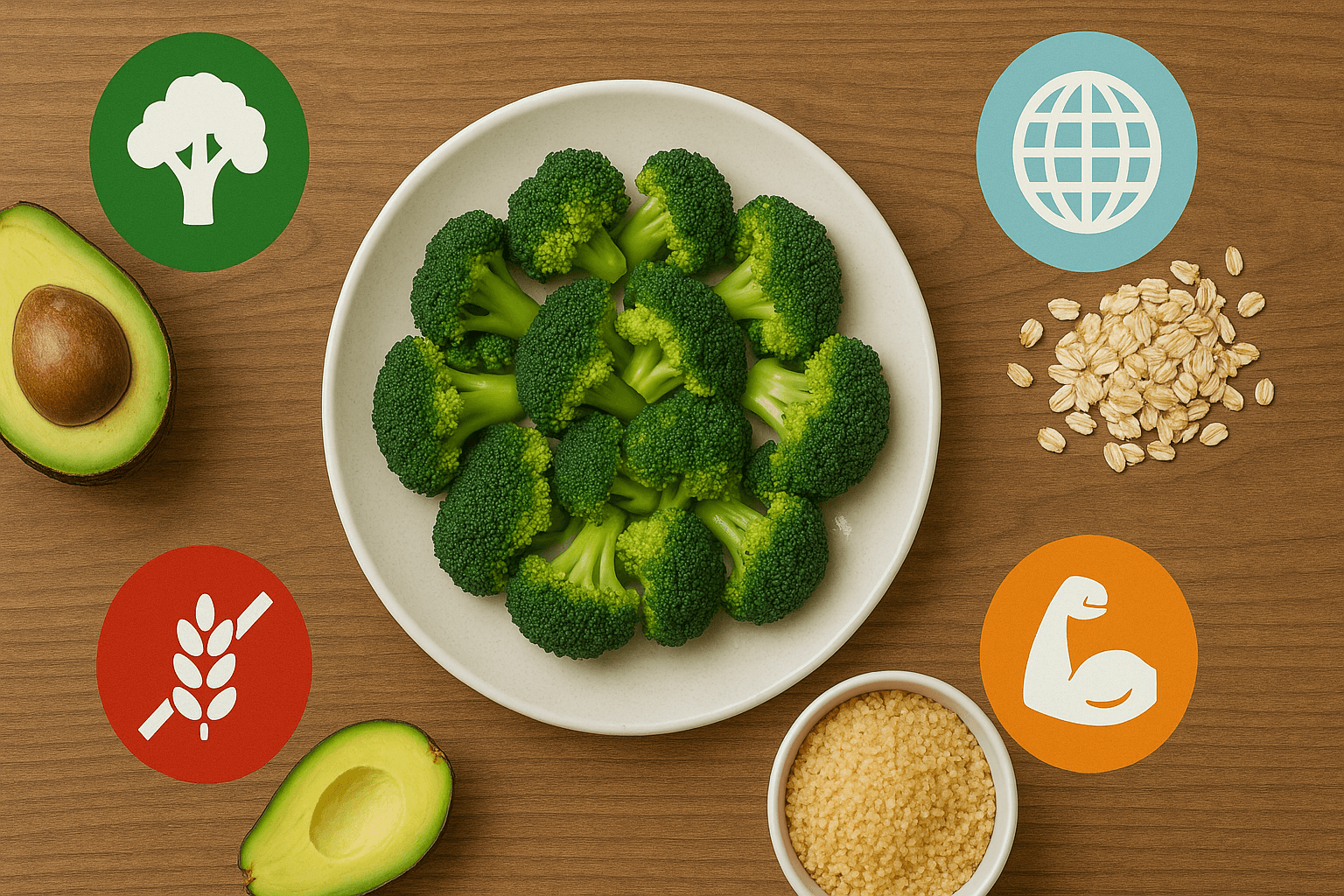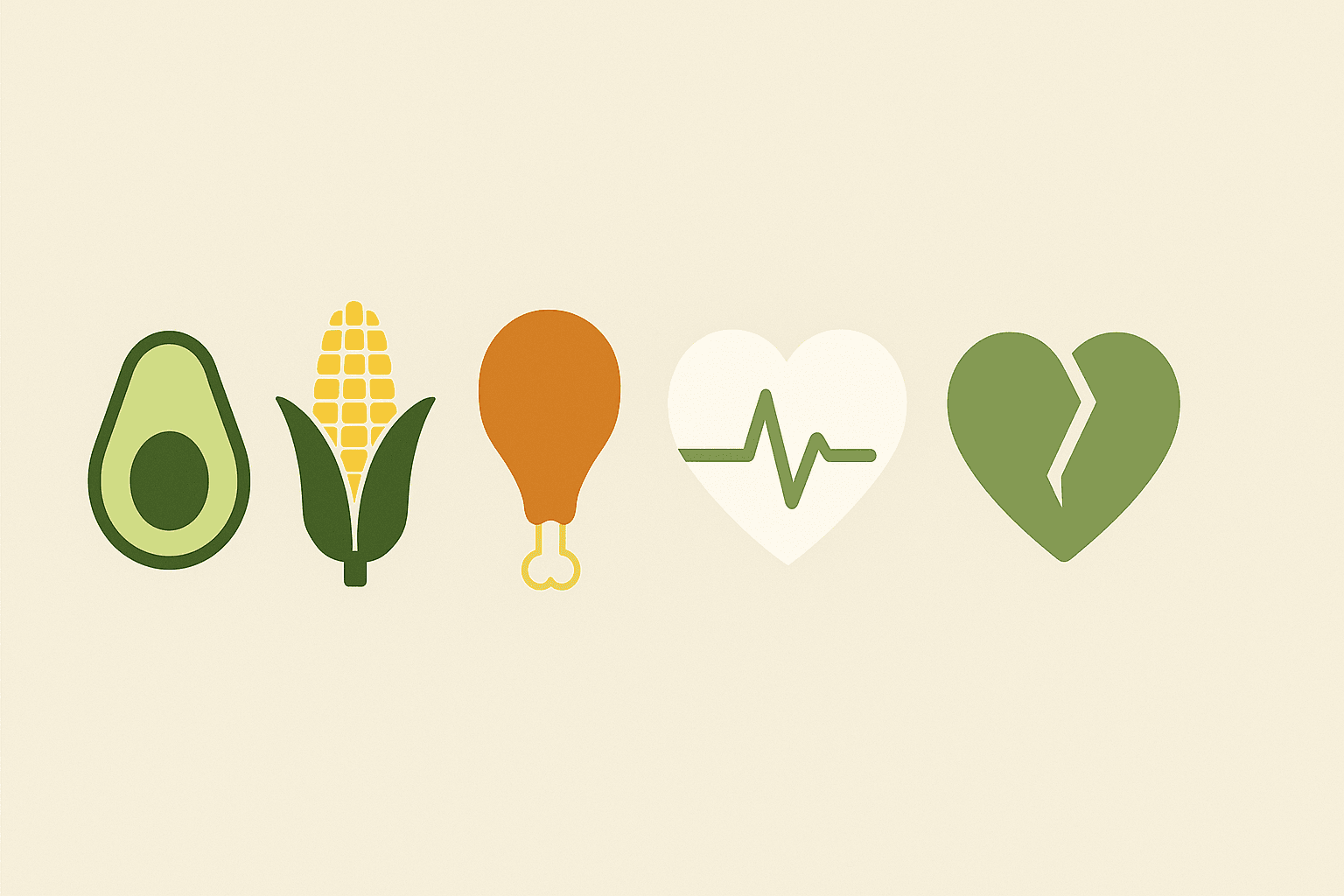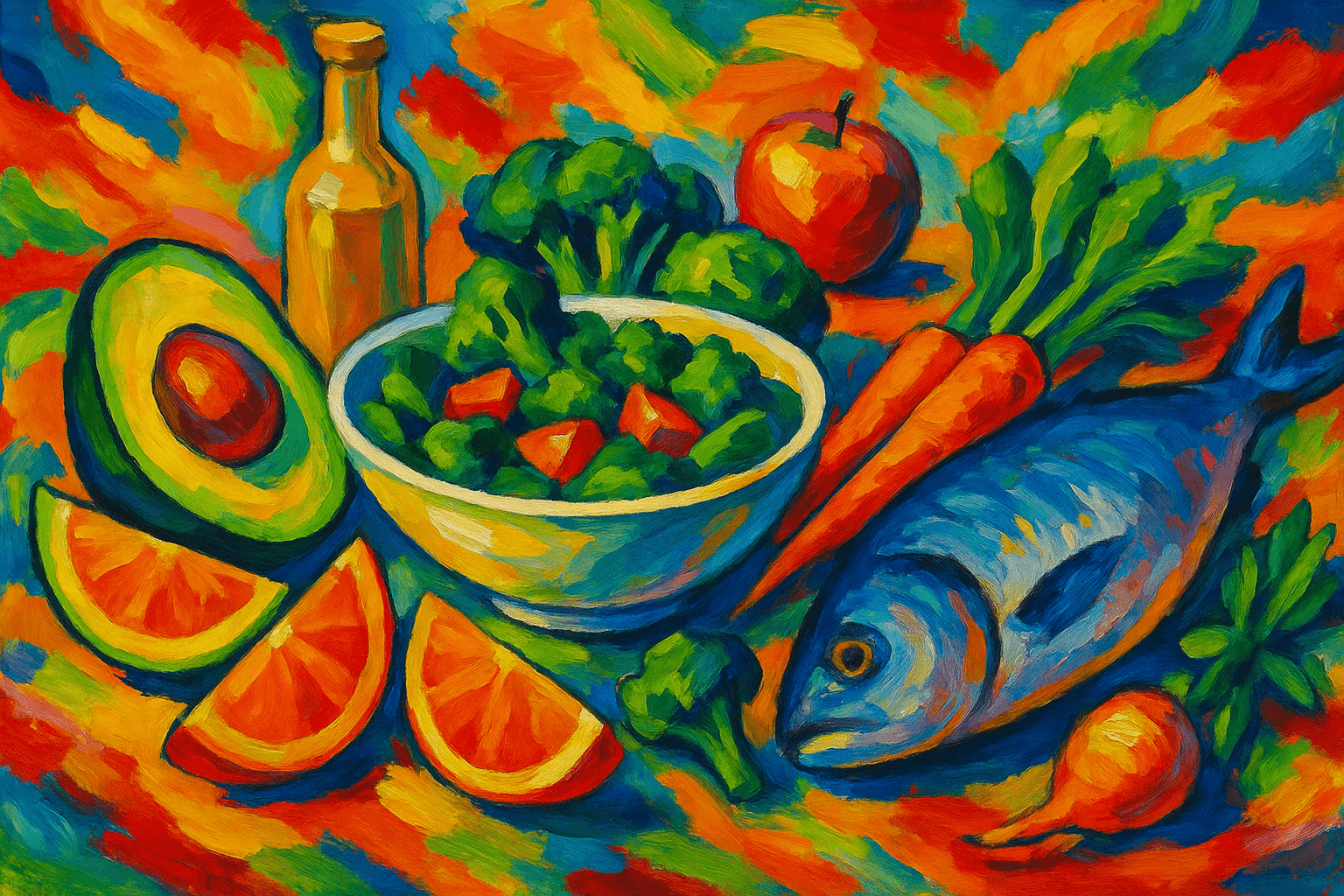SCIENCE-BACKED SPECIAL DIETS: WHAT WORKS, WHAT DOESN’T, AND HOW TO CHOOSE WISELY
Published on July 30, 2025

Special diets are everywhere. Each passing year appears to send with it a new host of eating trends, from pegan and keto to gluten-free and plant-based, promising that this way of eating will hold the key to a longer, healthier, happier life. Amidst all the noise, it’s easy to get lost in the fray or feel overwhelmed. As a veteran dietitian and nutrition scientist, I’ve watched the fads come and go over the decades — and I know what really works, too. Is freezing butter straight off its product or simply buzz? Today, we’re decoding the science, busting the myths, and bringing you the truth about what not only is trending, but what is also worth your time, your energy, and your plate. Since the best diet for you is one that supports your health, fits your lifestyle and lets you feel amazing, from the inside out.
What Is a Special Diet, and Why Do People Try Them?
A special diet is, at least at root, simply any way of eating that deviates from your culture’s, country’s or social group’s “standard” diet. These diets are usually crafted with a purpose in mind: managing a medical condition like diabetes, losing weight, raising energy levels, gaining muscle, rejuvenating skin, optimizing digestion, honoring a personal belief or faith, or just feeling better every day. People choose to adopt special diets for a host of different reasons: strict avoidance for survival (celiac disease or extreme food allergies), optimizing performance (athletes, bodybuilders, those seeking the optimal mental state), or simply hoping to feel a little lighter, a little clearer, a little more alive.
For millions of people, the search for a special diet is deeply personal. It could be a medical diagnosis, a visit from a friend or even a celebrity’s Instagram feed. But the truth is this: no two people have the exact same needs, preferences or health goals. What invigorates one person is liable to leave another sluggish. The best diet isn’t the one that’s plastered across social media promising amazing results in a short time or one that imposes arbitrary rules and calls for severe deprivation; it’s the one that you can build and shape into your life.
Intermittent Fasting: The Science Behind the Trend
Intermittent fasting (IF) isn’t just another fad — it’s an ancient custom that’s become a modern health phenomenon. At its core, IF means cycling between periods of eating and not eating. Common options include the 16:8 method (fasting for 16 hours, eating during an eight-hour period) or even the occasional 24-hour fast. But what is really going on in your body when you fast?
Research has found that IF can aid with weight loss, typically by decreasing total calorie consumption without forcing one to count every bite. But the advantages go beyond the scale. Fasting seems to increase your insulin sensitivity, helping your body better manage blood sugar, a major win for metabolic health and diabetes prevention. There’s some early evidence it may reduce inflammation, ramp up autophagy (your body’s internal “clean-up crew” for old cells, including damage that can fuel aging), and even support healthy brain function as we age.
But it’s not for everyone. IF is powerful, but requires care and thought. For those with a history of eating disorders, pregnant or breastfeeding women, children, and certain people with long-term health conditions — fasting can be a bad idea. Even for healthy adults, the emphasis should be on what you eat, not just when. If you’re pulled in by IF, start by tightening up what’s on your plate, then play around with timing.
The Ketogenic Diet: Fat-Fueled, Science-Tested
The ketogenic diet (keto) is a popular way to lose weight. Unlike low-calorie, low-fat approaches, keto is high in fat, low in carbs, and moderate in protein. The aim is to transition your body from using glucose (carbs) as its main fuel, to burning ketones (produced by fat), a state called ketosis.
The science is fairly persuasive for short-term weight loss and blood sugar control. Studies show keto can support weight loss and lower blood sugar and insulin levels in people with type 2 diabetes (sometimes dramatically, but only under medical supervision). Keto often curbs hunger, likely due to steady blood sugar and the appetite-quelling effects of ketones.
However, there are trade-offs. Keto is hard, expensive and restrictive. The classic “bacon-and-butter” regimen can be high in saturated fat and lack important nutrients if not carefully constructed. There’s a risk of micronutrient deficiencies, constipation, and changes to the gut microbiome. Plant-based or Mediterranean-style keto — focused on leafy greens, nuts, seeds, olive oil, avocados and fatty fish — is tied to better heart and gut health.
For others, keto is life-changing. For some, it’s not sustainable or enjoyable. Always consult a registered dietitian, nutritionist or doctor before embarking on a very low-carb diet.
Vegetarian and Vegan Diets: Eating for You and the Planet
Plant-based diets are taking off — and for good reasons. Whole grains, legumes, nuts, seeds, fruit and vegetables, with little or no animal products, provide a bounty of fiber, antioxidants and plant nutrients — and a world of flavor.
People eating plant-based diets tend to have lower rates of heart disease, high blood pressure, diabetes, and certain cancers. These diets are fiber-rich, feeding your gut microbiome and supporting digestion and immunity. They’re also kinder to the planet, using fewer resources and creating less pollution than meat-centric diets.
But balance is key. Eliminating animal products requires special attention to vitamin B12, iron, calcium, omega-3s, and zinc. With thoughtful planning, fortified foods and occasional supplements, plant-based diets can work for all stages of life.
If you’re considering eating more plants, remember: it’s not about perfection, but progress. Every extra serving of plants helps your health — and the planet.
Gluten Free and Low-FODMAP Diets: Digestive Health and Challenges
For some, “gluten-free” is not a fad, but a medical necessity (celiac disease or wheat allergy). For those with non-celiac gluten sensitivity or IBS, gluten or some fermentable carbohydrates (FODMAPs) can bring real discomfort.
A gluten-free diet can be life-altering, but gluten-free processed foods aren’t always healthier — they can have less fiber and more sugar or fat. Most people without celiac or gluten sensitivity don’t benefit from going gluten free and may miss out on essential nutrients in whole grains.
The low-FODMAP diet is a well-studied fix for IBS, but it’s a short-term experiment: eliminate, then slowly reintroduce foods to determine triggers, ideally under a dietitian’s guidance.
Digestive health diets can be life-changing for those who need them, but self-diagnosis can lead to nutrient gaps and food anxiety. Consult a professional before major changes.
DASH and Mediterranean Diets: The Gold Standard for Heart Health
For heart health, two diets stand out: DASH and Mediterranean. Both are based on the traditions of the world’s healthiest, longest-lived populations.
The DASH diet was created to lower blood pressure: fruits, vegetables, whole grains, low-fat dairy, nuts, lean proteins, less salt, red meat, sweets and sugary drinks. Decades of research show DASH lowers hypertension, improves cholesterol, and reduces cardiovascular risk.
The Mediterranean diet includes lots of vegetables, whole grains, legumes, nuts, seeds, olive oil, some fish and poultry, and limited dairy and red wine. Research links this style to lower risks of heart attack, stroke, diabetes, dementia and even depression.
These aren’t deprivation diets — they’re diets of abundance, flavor and pleasure. That’s why people love to eat this way — and science loves the results.
Paleo, Whole30 and Elimination Diets: What’s the Real Story?
The Paleo and Whole30 diets encourage eating like our ancestors: whole foods available in prehistoric times — meat, fish, fruits, vegetables, nuts — eliminating grains, legumes, dairy, processed foods. For many, these break the ultra-processed eating cycle and increase food awareness.
Reducing ultra-processed foods and added sugar is always a plus. But these diets eliminate foods with evidence for gut and heart health — especially legumes and whole grains. Strict “cleanses” are hard to sustain, can feel depriving and may lead to nutritional gaps.
Best used as a temporary reset to identify sensitivities, boost kitchen skills, or rethink habits, not as permanent ways of eating. Dietary diversity is key to both physical and mental health.
Therapeutic Diets: When Food Becomes Medicine
For some, diet is integral to surviving a disease. Celiac disease requires lifelong gluten elimination. Type 1 diabetes involves meal planning, carb counting, and insulin. Chronic kidney disease often means limiting protein, sodium, potassium, and phosphorus. Food allergies require total avoidance.
For these and other conditions, “cheating” isn’t an option. Supervision from a registered dietitian ensures safety, nutrition, and quality of life.
Busting Diet Myths: What Doesn’t Work
Detoxes and cleanses aren’t needed — your liver and kidneys already do the job.
No “superfood” makes you healthy overnight.
No one-size-fits-all diet exists — your needs are unique.
Carbs aren’t the enemy: focus on whole, fiber-rich sources like veggies, fruits, legumes, whole grains.
Beware any diet promising rapid results or cutting entire food groups without scientific reason.
How to Choose the Perfect Special Diet for YOU
Personalize: Your goals, preferences, medical history and lifestyle matter.
Balance: Don’t exclude nutrients. If cutting a food group, replace its nutrients elsewhere.
Plan: Do your homework (or work with a pro) to avoid deficiencies.
Enjoyment: The best diet is one you enjoy and want to follow.
Sustainability: Can you stick with it for months, or more?
Professional guidance: For chronic illness, pregnancy, children or athletes, don’t DIY — work with a registered dietitian.
No headline or influencer knows your body better than you do — and no special diet should make you feel anxious, deprived or alone. Food should empower, not punish.
A Dietitian’s Final Answer: From Hype to Health
Special diets, when grounded in science and tailored for you, can unlock real healing and energy. But beware of easy fixes and empty promises. No one plan works for everyone. The best diet is the one that fuels your body, mind, and your most joyful, vibrant self.
Next time a “hot” diet appears, ask: is it supported by science? Does it fit my needs? Is it sustainable and enjoyable? If so — go for it! If not, keep exploring. Healthy eating is a lifelong journey, not a 30-day challenge.
Stay curious. Stay empowered. And always let science, experience, and pleasure guide you!



